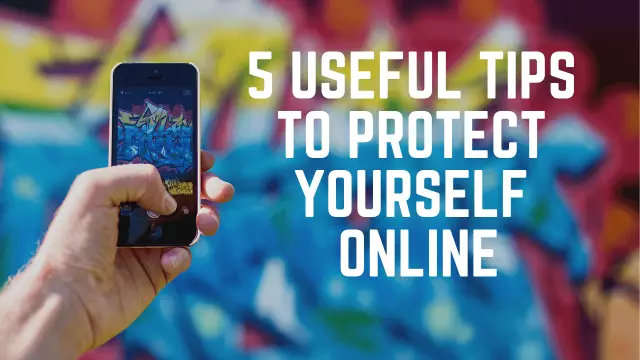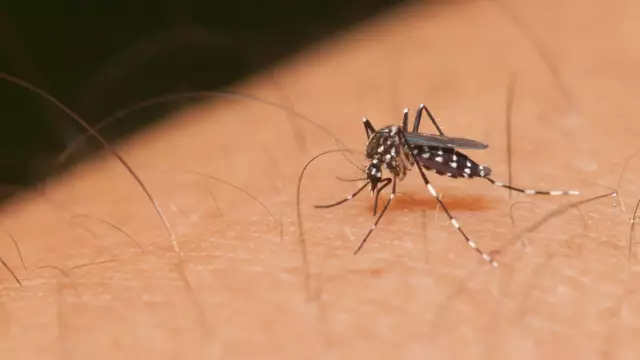- Author Rachel Wainwright wainwright@abchealthonline.com.
- Public 2023-12-15 07:39.
- Last modified 2025-11-02 20:14.
How to treat and protect yourself from ARVI: frequently asked questions about preventing and treating the common cold
We live in an interesting time - organ transplantation has become a routine, scientists practice chromosome disconnection and have invented a cure for multiple sclerosis, but a universal remedy for the prevention and treatment of colds has never appeared. Every autumn and winter, we continue to cough, sneeze, lie with a temperature. There are debates on the Internet about whether it is necessary to bring down the temperature of children, how effective the new advertised medicine is, whether it is possible to bathe a child with a cold, whether it is enough to be vaccinated against the flu to protect yourself 100%. Let's understand what ARVI is and how to properly treat this disease.

What is a cold? How is it different from the flu?
Not a single doctor will diagnose a patient with a cold, there is simply no such disease in the international classifier of diseases, but there is a group of diseases called colds. These are viral and bacterial infectious diseases that are transmitted through the air and cause damage to the respiratory system: runny nose, sore throat, swelling and redness of the nasopharynx, cough. Therefore, most often doctors use the terms ARI - acute respiratory (airborne) disease, or ARVI - acute respiratory viral infection.
Influenza refers to acute viral respiratory infections (ARVI). In the case of flu, the causative agent is the Influenza virus. The causative agents of other colds are about 200 species, a fairly common causative agent of ARVI is, for example, the Rhinovirus virus.
The main difference between most colds and flu is that they are milder. Influenza is difficult to tolerate, moreover, this disease can lead to complications in the form of pneumonia, bacterial infections and even death.
Key differences between colds and flu
| Colds | Flu | |
| General state | The patient is slightly unwell | Severe discomfort that lasts longer and can lead to complications |
| Temperature | Low temperature, can run without temperature | Characterized by high fever, fever |
| Symptoms | A dry cough may appear, general weakness and body aches are possible, but they are mild | Markedly pronounced: body aches, general weakness, joint pain, cough |
| Features of the manifestation of symptoms |
Symptoms of the disease appear alternately, most often at first there is pain and sore throat, then a runny nose, and then a cough |
All symptoms appear almost simultaneously and very intensely |
| Duration of the disease | Symptoms gradually decrease over the course of a week. | The disease lasts on average about 10-14 days |
Is it possible to catch a cold with hypothermia?
ARI, including influenza, are infectious diseases, respectively, they can only get sick when faced with pathogens - viruses or bacteria. But why, then, do we often catch colds after hypothermia? In fact, hypothermia acts as an unfavorable factor that causes suppression of immunity. Because of this, the immune system cannot recognize pathogens in time and respond to their invasion of the body. As a result, a frozen person is significantly more likely to get sick.

What are the cough remedies?
Most often, drugs of the following groups are used to treat ARVI:
- immunostimulants and immunomodulators;
- antiviral agents;
- remedies for symptomatic treatment - antipyretic, pain relievers, facilitating breathing;
- if bacterial complications occur, or if the bacterial nature of the infection is proven, antibacterial drugs (antibiotics) may be prescribed.
Most cold remedies are available over the counter without a prescription. Nevertheless, if you are sick, it is better to consult a doctor who will determine the specifics of the disease and prescribe the optimal treatment regimen.
Of course, this does not mean that you do not need to understand medicines yourself. In addition, some drugs can be used to prevent ARVI, which is always preferable to treating the disease.
Are immunostimulants effective?
Immunostimulants are drugs that act on the body's immune system by enhancing the response of the immune cells (what is commonly referred to as "boosting immunity"). Immunostimulants belong to immunomodulatory agents, therefore these names are often confused or used interchangeably. But, strictly speaking, immunomodulators are a broader definition that also includes a group of immunosuppressive drugs that are used in the treatment of a number of autoimmune diseases to "turn off" immunity.
Immunostimulating drugs include: therapeutic vaccines, biologically active peptides, interleukins, interferons and some other drugs. The most popular drugs are based on interferon - a special protein that is produced by cells when they encounter a virus. Under the influence of interferon, cells become immune to the virus, which inhibits its reproduction and spread in the body.
Despite the great popularity of immunostimulants, their use is not justified when it comes to the common cold. The immune system is quite capable of coping with most threats on its own; it does not need to be "spurred" additionally.
Immunostimulants should be prescribed by a doctor and only if there are serious indications for this, that is, proven suppression of immunity. If you use these funds uncontrollably and for a long time, you can cause serious harm to the body, which can be expressed in a reverse reaction - the depletion of immunity.
In other words, at the first signs of a cold, you should not experiment with immunomodulators and immunostimulants, since there is a risk that the body will get used to such stimulation and simply stop fighting even a minor cold itself, not to mention more serious diseases.

How do antiviral drugs work? How to choose the right product?
Direct-acting antivirals are used directly to treat disease caused by a specific virus and, in some cases, prevent viral infections. In other words, an influenza virus remedy will be useless to treat a rhinovirus infection.
Antiviral drugs can be roughly divided according to the stage of the life cycle at which they act on the virus:
- They prevent the penetration of the virus into the cell.
- They inhibit the reproduction of the virus directly inside the cell.
- Block the release of viral copies from the cell.
The main problem in the selection of an effective antiviral agent is the need to accurately identify the virus, and this takes a long time. In addition, viruses mutate successfully, quickly adapting to new environmental conditions and the effects of drugs. SARS alone can cause more than 200 viruses. Therefore, there is no universal antiviral "magic pill" among these drugs, but they can be effective against some specific types of virus. Among the most popular antiviral agents for influenza are Tamiflu, Remantadin and others.
When prescribing a particular remedy, a specialist must take into account the current symptoms, age, state of health of the patient, and the presence of other diseases. Therefore, purchasing a drug "on advice" or by giving in to advertising may be useless at best.
Antibiotics in the treatment of colds: when is it needed?
Do not take antibacterial drugs (antibiotics) unless prescribed by your doctor. These agents suppress the development and spread of pathogenic bacteria, but are completely useless against viruses.
Antibiotics can be prescribed by a doctor if bacterial complications occur during the illness, but self-medication with these drugs does more harm than good.
In addition to the absolute ineffectiveness of antibiotics in the fight against viruses, the chaotic intake of one or another antibacterial drug can lead to the development of resistance (resistance) of bacteria to this active substance. Do not forget about the whole bunch of side effects that antibiotic treatment is fraught with.
Antipyretics: when are they needed and how to use them correctly?
Antipyretic drugs are symptomatic remedies. Those. they help to cope not with the cause of the disease, but with its manifestations - in this case, with a high temperature. Antipyretics simply alleviate the condition, but do not eliminate the cause of the disease, that is, they do not affect the virus. In addition, as a rule, antipyretics are not prescribed for antibiotic treatment due to the difficulty of assessing the effectiveness of the latter against the background of a decrease in temperature with other drugs.
The most popular antipyretics - based on paracetamol and ibuprofen, can even be given to children. The main thing is not to exceed the recommended dosage. Taking paracetamol at a dose of more than 10 g in adults or more than 140 mg / kg in children can lead to liver poisoning and damage. For example, for a child weighing 25 kg, a dose of 450 mg of paracetamol will be toxic (Teraflu contains 325 mg of paracetamol).
As for other antipyretics, doctors strongly do not recommend bringing down the temperature to children and adolescents under 16 years of age with aspirin (acetylsalicylic acid), since the use of this agent for a viral infection can provoke the development of Reye's syndrome.

What should be the prevention of ARVI? Will vaccinations help, and what can you do yourself?
As you probably know, it is better to prevent the disease, and not to deal with it afterwards. Prevention is all the more important if you or your loved ones are particularly susceptible to infections during the cold season.
As already mentioned, antiviral agents can be used as prophylactic agents. But in order for them to really work, you need to know which viruses are expected to be attacked this season in your area. Such details are difficult to understand without consulting a doctor.
Experts of the World Health Organization strongly recommend that, as a preventive measure, an influenza vaccine should be given annually, which, at a minimum, will ease the course of the disease. According to some reports, such vaccination reduces the risk of getting sick several times.
Protecting yourself from a possible illness with the help of vaccination, you need to remember:
- It is advisable to vaccinate in the fall, even before the "cold season". The immune system takes at least a month for the vaccine to work.
- The flu vaccine does not protect against all respiratory infections, so even after vaccination there is a chance of getting SARS.
High activity of the following influenza virus strains is expected this season:
- Influenza virus A / Brisbane / 02/2018 (H1N1);
- influenza virus A / Kansas / 14/2017 (H3N2);
- influenza virus B / Colorado / 06/2017 (line B / Victoria / 2/87);
- influenza virus B / Phuket / 3073/2013 (lineage B / Yamagata / 16/88)
According to Rospotrebnadzor, influenza A (H1N1) virus is most often detected in patients. This strain is called pandemic - people do not yet have immunity to it, it spreads quickly and can cause serious complications. To prevent this particular strain of influenza, vaccination is really necessary.
Another well-known way to protect yourself from viruses during the cold season is to use essential oils. The antiviral and antibacterial properties of essential oils make them an excellent option for protecting against SARS infection at home.
For the prevention of colds with the help of essential oils, passive inhalation is used. Making them is very simple - apply a few drops of oil on a napkin, cotton pad and put it in the bedroom, nursery, on the desktop. And for protection in public places, it is recommended to apply essential oils to the scarf. By evaporating, essential oils will decontaminate the air and reduce the risk of viruses entering your body.
Some manufacturers of essential oil products are very serious about the use of such products for medicinal purposes. For example, "Breathe Oil", which is a composition of natural pure essential oils, is undergoing clinical studies to confirm its effectiveness and safety. According to clinical studies, the use of "Breathe Oil" reduces the risk of contracting ARVI by 3 times, and when used in the complex therapy of ARVI helps to reduce the risk of complications, and also accelerates recovery. "Breathe Oil" is approved for use in children from 1 year of age and adults, it is available in the form of oil in a bottle, spray, and also complete with an inhaler bracelet.
Eucalyptus, mint, juniper, clove, cajeput and wintergreen essential oils, which are part of Oils of Breathe, have antibacterial and antiviral properties. If for some reason oil or spray is inconvenient to use, you can take an inhaler bracelet that is comfortable to wear on your hand. Wearing such a bracelet with a few drops of oil, you will constantly be in a protective cloud of essential oils.

And finally, a few more recommendations
When choosing the most convenient way to prevent and treat ARVI, remember that no remedy guarantees one hundred percent protection against diseases. Therefore, in order for the above methods to give the maximum effect, do not forget the general rules of prevention during the cold season:
- ventilate the rooms regularly,
- humidify the air in the house, do wet cleaning regularly,
- walk more often in the fresh air and exercise regularly,
- watch your diet, giving preference to seasonal fruits rich in vitamins,
- wash your hands after every going out or traveling in transport, if not possible, use a hand sanitizer.
Be healthy!

Found a mistake in the text? Select it and press Ctrl + Enter.






